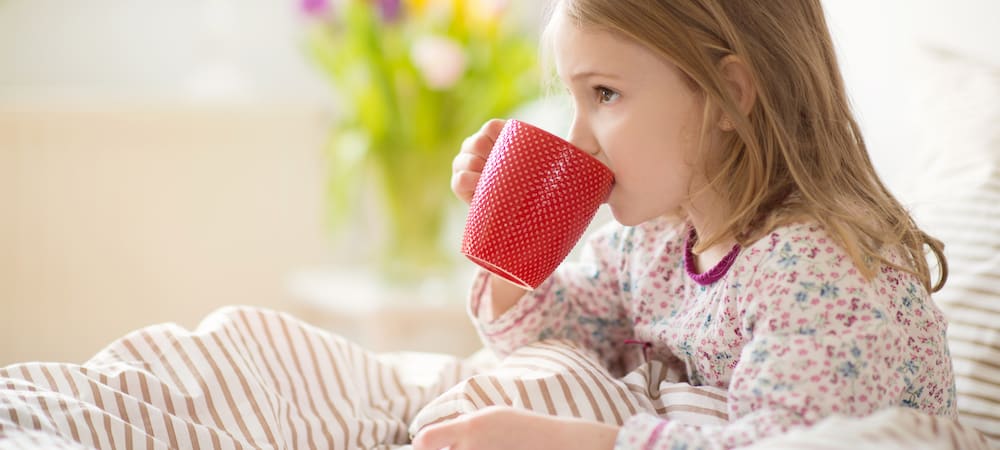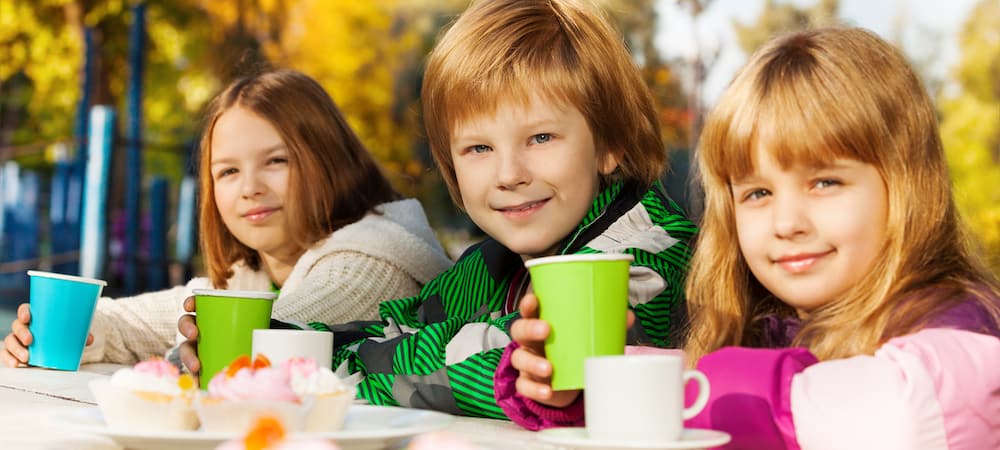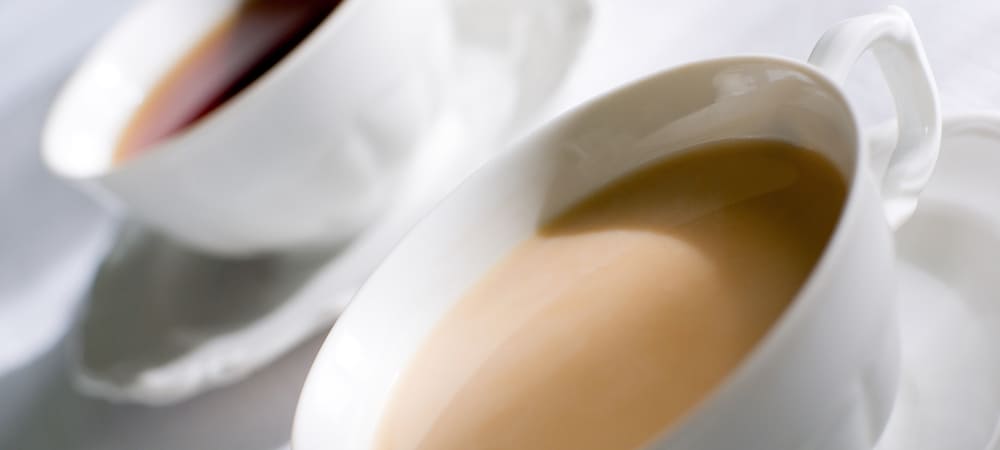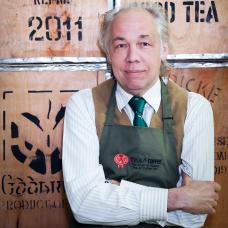Is it Safe for Children to Drink Tea or Coffee?

Parents have asked us before, “Can children drink Tea and Coffee?” It is one of those things dependent on a vast multitude of factors, from age to sleeping patterns to upbringing styles. In other words, there isn’t just one answer, but many based on different circumstances. Nevertheless, the following article will delve deep into the safety of children drinking Tea and Coffee.
Most adults, meanwhile, needn’t worry about their caffeine fix, which is where The Kent and Sussex Tea and Coffee Company come in. Our family-run establishment stocks over 1,000 types of Tea and 70 types of Coffee, each with something unique to offer – and each packed fresh to order. Be sure to browse our selection to find the brew for you. But now is the time to discover, “Can kids have Tea and Coffee?”
Is it Safe for Children to Drink Tea Index

Can Children Drink Tea?
So-called “real” Tea (not Herbal or Fruit Tisanes) comes from the Camellia sinensis (Tea) plant. This is where we get the likes of Black, Green, White and Oolong Tea, which are all, in turn, created using different processing methods. Black Tea, in particular, undergoes the most oxidation and, as a result, contains the highest amount of caffeine – 45-mg per 8-oz serving.
According to experts, the average adult shouldn’t exceed more than 400-mg of caffeine a day. That’s about the amount of caffeine found in two energy drinks, four cups of Fresh Coffee, or ten cans of cola. When it comes to Black Tea, on the other hand, you could have up to 8-9 cups daily. Remember, though, that we’re talking about adults. Is it safe for children to drink Tea of a similar amount – if at all?
Unfortunately, research points to the latter being true: Parents shouldn’t give their children a caffeinated cuppa in any way, shape, or form. This is primarily because, quite simply, the effects of caffeine on children remain largely unknown. The preliminary evidence we do have, provided by the American Academy of Pediatrics, recommends that kids aged 12 or younger should avoid the stimulant at all costs.

Can Children Drink Coffee?
Coffee derives from the Coffea plant of the Ryvuaceae family. The “beans”, as we know them, are, in fact, the seeds grown in cherry-like fruits. When roasted, these Coffee beans provide casual drinkers and connoisseurs alike with complex flavour notes and, like Tea, invigorating energy kicks brought about by caffeine. It stands to reason, then, that, like Tea, Coffee is bad for children.
No surprises here. Indeed, seeing as a typical cup of Joe tends to contain more caffeine than its Loose Leaf Tea counterpart, it is again one to avoid in youngsters. Those wondering, “What age can kids drink Coffee?” should probably refer to the same research accumulated by the American Academy of Pediatrics above. But what happens if a kid drinks Coffee or Tea that has undergone decaffeination?

Decaf Tea and Decaf Coffee for Kids
Decaffeination is where the caffeine content of Tea and Coffee is extracted. However, contrary to popular belief, the process doesn’t remove 100% of the stimulant from the leaves and beans. This means that a trace amount remains, which could still affect kids and adults upon consumption. Since we don’t know how much caffeine is safe for children (if there is such a thing), we’d urge caution.
It’s worth noting, too, that the recommendations around caffeine and children extend to all caffeinated products, especially energy drinks. The problem appears to be that it impacts children’s cardiovascular and nervous systems, as well as increases the risk of anxiety, blood pressure, sleep and acid reflux issues. The Great Ormond Street Hospital has compiled caffeine facts for kids for more information.
Summary to Can Children Drink Tea and Coffee
Our article has determined, once and for all, the question to “Is Tea bad for kids?” While there are a few unknowns, it is best to err on the side of caution and, therefore, you shouldn’t give it to children under 12-years-old. Much of the same applies to the question, “Can children drink Coffee?” The bottom line is that what caffeine does to children is still somewhat of a mystery, even in small amounts such as Decaf.

 Loose Leaf Tea
Loose Leaf Tea Pyramids
Pyramids Tea Bags
Tea Bags Africa
Africa Assam
Assam Ceylon
Ceylon Chinese
Chinese Darjeeling
Darjeeling European
European Indian
Indian Japan
Japan Nepal
Nepal South East Asia
South East Asia Ayurveda Tea
Ayurveda Tea Black Tea
Black Tea Chai Tea
Chai Tea Flowering Tea
Flowering Tea Fruit Tisanes
Fruit Tisanes Green Tea
Green Tea Herbal Tea
Herbal Tea Matcha Tea
Matcha Tea Oolong Tea
Oolong Tea Organic Tea
Organic Tea Pu erh Tea
Pu erh Tea Rooibos Tea
Rooibos Tea White Tea
White Tea Asian Coffee
Asian Coffee Caribbean Coffee
Caribbean Coffee Central American Coffee
Central American Coffee South American Coffee
South American Coffee Coffee Blends
Coffee Blends Decaffeinated Coffee
Decaffeinated Coffee Espresso Coffee
Espresso Coffee Ethically Sourced Coffee
Ethically Sourced Coffee Flavoured Coffee
Flavoured Coffee Organic Coffee
Organic Coffee Single Origin Coffee
Single Origin Coffee Chocolate 1
Chocolate 1 Chocolate 2
Chocolate 2 Chocolate 3
Chocolate 3 Chocolate 4
Chocolate 4 Chocolate 5
Chocolate 5 Chocolate 6
Chocolate 6 Chocolate 7
Chocolate 7 Chocolate 8
Chocolate 8 Chocolate 9
Chocolate 9 Loose Tea Filters
Loose Tea Filters Tea Accessories
Tea Accessories Tea Bricks
Tea Bricks Tea Caddies
Tea Caddies Tea Caddy Spoons
Tea Caddy Spoons Tea Gift Ideas
Tea Gift Ideas Tea Infusers
Tea Infusers Tea Strainers
Tea Strainers